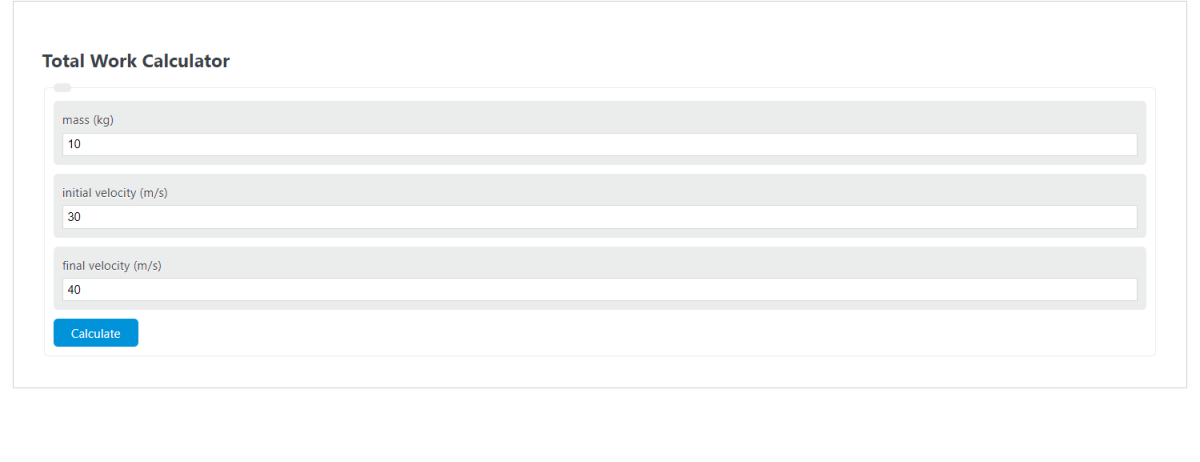Enter the mass (kg), the initial velocity (m/s), and the final velocity (m/s) into the calculator to determine the Total Work.
- All Physics Work Calculators
- Net Work Calculator (Physics)
- Spring Work Calculator
- Pressure Volume Work Calculator
Total Work Formula
The following formula is used to calculate the Total Work.
Wtotal = 1/2*m*(Vf^2-Vi^2)
- Where Wtotal is the Total Work (Joules)
- m is the mass (kg)
- Vi is the initial velocity (m/s)
- Vf is the final velocity (m/s)
To calculate the total work, multiply the mass by the difference of the final velocity squared and the initial velocity squared, then divide by 2.
How to Calculate Total Work?
The following example problems outline how to calculate the Total Work.
Example Problem #1
- First, determine the mass (kg). In this example, the mass (kg) is given as 10 .
- Next, determine the initial velocity (m/s). For this problem, the initial velocity (m/s) is given as 30 .
- Next, determine the final velocity (m/s). In this case, the final velocity (m/s) is found to be 40.
- Finally, calculate the Total Work using the formula above:
Wtotal = 1/2*m*(Vf^2-Vi^2)
Inserting the values from above and solving yields:
Wtotal = 1/2*10*(40^2-30^2) = 3500 (Joules)
Example Problem #2
Using the same method as above, determine the variables required by the equation. For this example problem, these are provided as:
mass (kg) = 5
initial velocity (m/s) = 40
final velocity (m/s) = 60
Enter these given values yields:
Wtotal = 1/2*5*(60^2-40^2) = 5000 (Joules)
